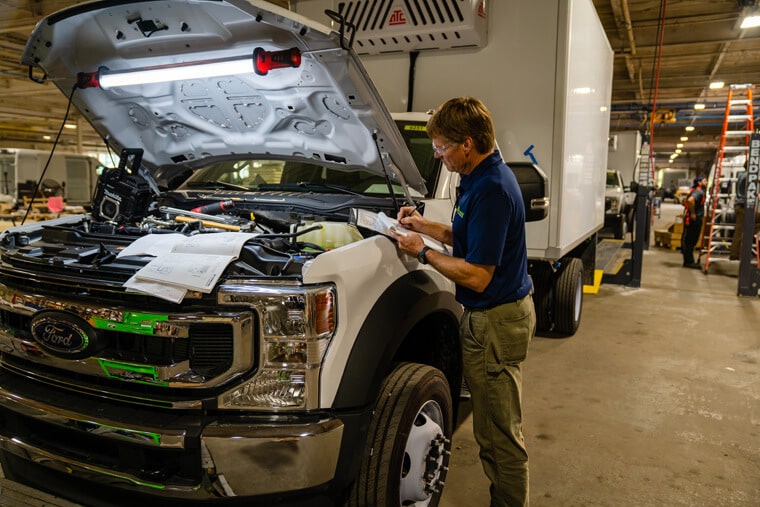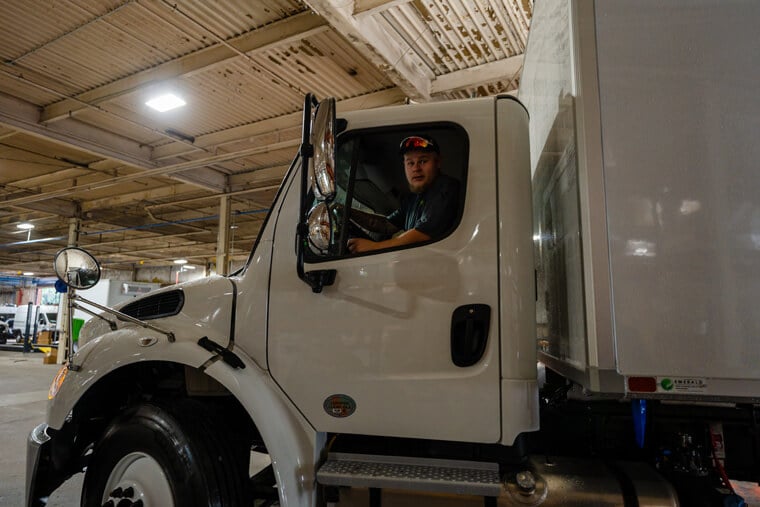
Benefits of Refrigerated Trucks in Transporting Perishable Goods
Joe Dickman | August 10th, 2021
The last thing any business owner wants is for their perishable goods to spoil and expire during delivery. You should use a refrigerated truck whenever you need to transport products that are susceptible to the elements. Read on to learn more about the benefits of refrigerated trucks in transporting perishable goods.
What Is Perishable?
Perishable products are those that you must keep within a specific temperature range to prevent them from spoiling or losing their integrity. For example, perishable foods like meat, dairy, and seafood are likely to deteriorate, rot, or become dangerous to ingest if you don’t keep them refrigerated at 40°F or below or frozen at 0°F or below. Many kinds of medication need to stay at a specific temperature range as well. Otherwise, they become unstable.
How to Transport Perishable Goods
The best option for transporting perishable goods is to use refrigerated trucks and vans. Refrigerated trucks feature internal cooling systems that keep their trailers at specified temperatures. You can adjust these vehicles to temperatures ranging from freezing to room temperature, depending on the products they’re transporting.
Benefits of Using Refrigerated Trucks
When you need to send perishable goods from one location to another, refrigerated trucks offer many advantages over other delivery methods. Some of the benefits of refrigerated trucks in transporting perishable goods include the following:
- You can carry out quick and easy delivery to any nearby location.
- You can send more goods at the same time while saving money on packaging.
- You can continuously monitor your products and temperature and change anything as needed.
- You can follow all regulations, as the law may require you to use refrigerated trucks when you’re shipping perishable goods.
- They prevent food spoilage and keep the integrity of frozen items intact.
- They have humidity control for sensitive artwork.
- They keep vaccines and other medicines stable and help put them in the hands of the people who need them.
- They prevent cosmetics from melting and disintegrating.
- They enable tobacco products to hold their freshness and quality.
Any business that relies on safely delivering perishable goods needs quality refrigerated vehicles they can depend on. Emerald Transportation Solutions has many reliable vehicles, such as insulated vans for sale, to keep your products safe during delivery. Feel free to contact us with any questions you may have.
Related Articles
Contact Us
Feel Free To Contact Us If You Have Any Questions
What does under DOT mean?
Questions regarding DOT requirements come up often. 10,000 lbs GVW (gross vehicle weight) and over are commercial vehicles that fall under the Department of Transportation regulatory requirements.
What is the difference between GVW and payload?
GVW or Gross Vehicle Weight is the entire weight of the vehicle including the payload. The payload weight represents the amount of cargo you are hauling.
What is a self-powered unit and a vehicle-powered unit?
A self-powered unit has its own fuel source and will run independent of the truck. This is the heaviest and most expensive option. While vehicle-powered units run off the engine via a compressor mounted on the engine. These are less expensive and lighter in weight but you must run the truck or plug the electric standby into shore power.
What does K-factor mean and why is that important?
K-factor is a term that stands for the overall insulating value of the container (truck body). Quite simply the lower the K-factor the better the truck body will be able to maintain a given temperature and require less energy to do so.
How much lighter is a Poly Van vs a US spec body?
Poly Van bodies are very light. On average we estimate we are 75-150 lbs per foot lighter than a traditional sheet and post foamed in place body. These weight savings translates to less fuel burn and less CO2 emissions, along with added payload, the most important benefit.






